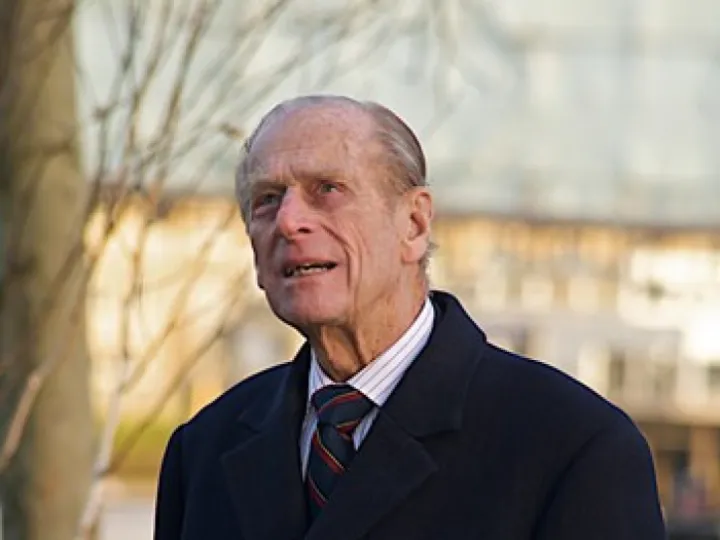Rev Peter Hills – Remembering a Christian Gentleman
{One short sleep past, we wake eternally,
And death shall be no more. Death, thou shalt die.} (John Donne)
Jesus said, 'I am the resurrection and the life. Those who believe in me, even though they die, will live, and everyone who believes in me will never die.' (John 11.25-26)
I was seven years old when my Aunt May – just out of school herself – came to tell us that the King was dead. A few days later the Headmistress of our Infants' School took some of us to her house to watch the funeral live on television. The following year we children were taken from school to the cinema twice: once to see Everest conquered in Beaconsfield film studios, and again to see the Queen crowned. By then we knew who Philip was: the dashing naval officer – I think I hero-worshipped him as much as I was in love with my beautiful Queen – who knelt before the throne and made his pledge to be her 'liege man of life and limb'. And so he was, to the day he died.
Since then, Prince Philip has been part of all our lives, as well as being the 'stay and support' to Her Majesty throughout their marriage, and her long reign. I won't add to the numerous wall-to-wall documentaries, newspaper articles and other accounts of his life. Suffice to say that there are deaths which affect us all, which in some way diminish us. The Queen Mum became to some extent the nation's granny. Dickie Mountbatten's shocking and brutal murder took from us a larger-then-life war hero, and his death was almost like losing an uncle. I was about to take an all-age service in my church in Germany on the day we received news of the death of Diana, Princess of Wales, and I had to announce it to the congregation. There was not a dry eye in the house, as they say. How we missed her. We had a visiting youth group from Aldershot with us, who introduced us for the first time to that lovely setting of the Twenty-third Psalm, with its chorus, that so caught our mood:
{And I will trust in you alone,
And I will trust in you alone.
For your endless mercy follows me,
Your goodness will lead me home.} (STF 481)
I have been lucky enough to meet members of the Royal Family, some more than once, but not Prince Philip. I used to see him up close every year at the Field of Remembrance by Westminster Abbey. Standing with officers of the Royal British Legion's Women's Section, as their Honorary Chaplain, next to the Royal Navy poppy garden, I would have a good view: not of a man born a Prince; not of the Consort of a Queen; not of a Royal Highness; at least, not in that place at that moment. I watched a (now elderly) naval officer greet his (now elderly) comrades, including one very old man whose life he had saved during the War. I saw love in action: they loved him, and he loved those he had once commanded and served with. They were family, too.
We mourn a man who knew what it meant to love; who knew what it meant to give up one's life for others – for his 'Lillibet', for his comrades, and for his country. Philip was a Christian – he had a theological library to rival that of any minister, and was a regular churchgoer. His faith was not skin-deep but real. So we mourn a Christian gentleman, who preferred to be amongst ordinary people, rather than people full of their own importance, when he wasn't with his family. He died in faith, loving to the end and loved by those who knew him best. May he rest in peace and rise in glory.
{
Finish, then thy new creation,
Pure and spotless let us be;
Let us see thy great salvation
Perfectly restored in thee:
Changed from glory into glory,
Till in heaven we take our place,
Till we cast our crowns before thee,
Lost in wonder, love and praise! } (Charles Wesley)
Peter


